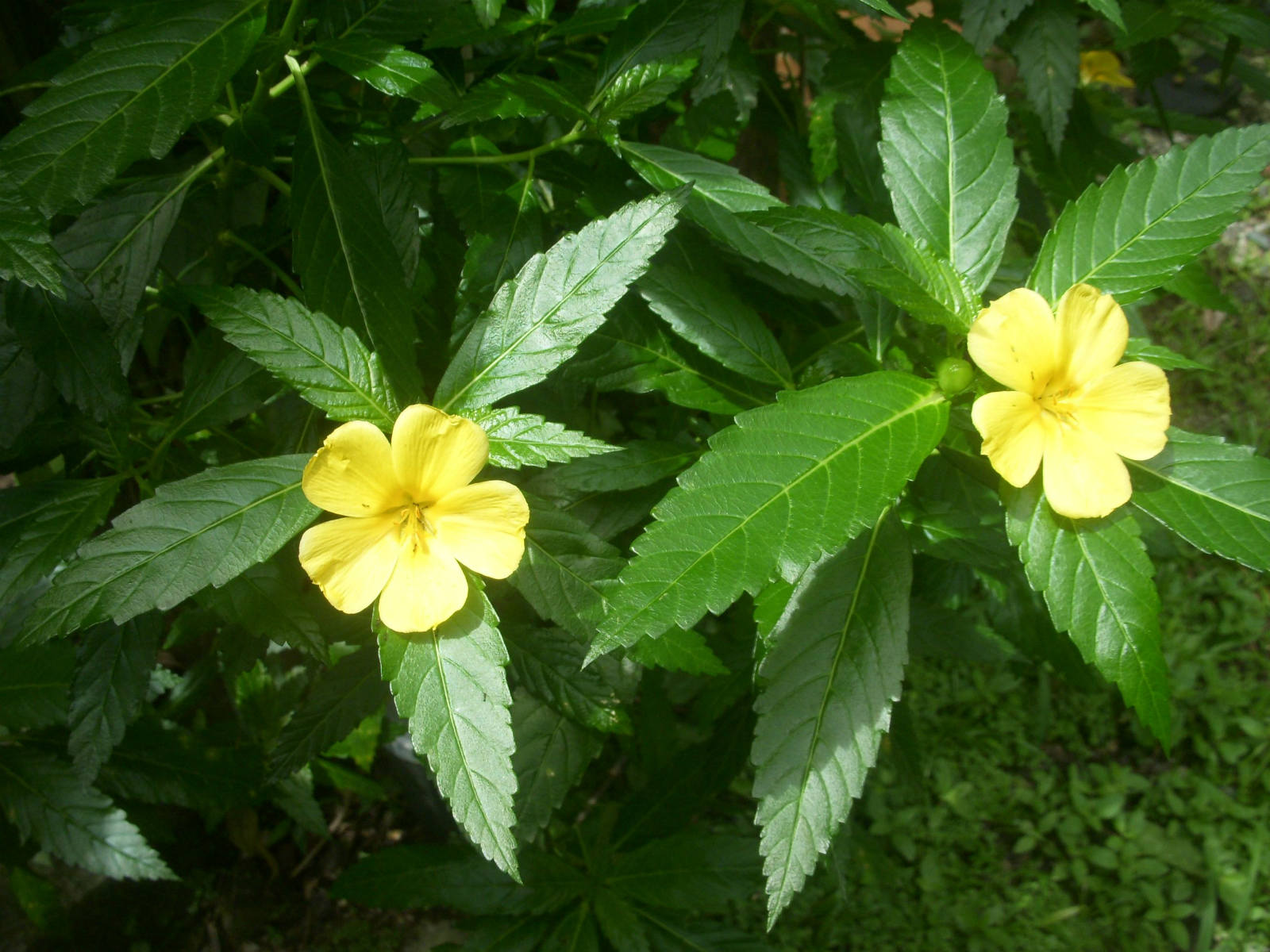Damiana (Turnera diffusa) is a small shrub native to Central America, Mexico, and the Caribbean. It has been used for centuries by indigenous people as a traditional medicine for a variety of conditions, including anxiety, depression, and sexual dysfunction. Damiana is also sometimes used recreationally as an herbal aphrodisiac.

The plant has been studied for its potential health benefits, and some research suggests that it may have a range of therapeutic properties. For example, a study published in the Journal of Ethnopharmacology in 2011 found that damiana extract was effective at reducing anxiety in rats. Another study published in the Journal of Pharmacy and Pharmacology in 2001 suggested that damiana may have antidepressant effects in mice.
In addition to its potential use for anxiety and depression, damiana has been studied for its potential benefits for sexual health. A study published in the Journal of Sex Research in 2009 found that damiana improved sexual satisfaction and overall sexual function in women who were experiencing sexual difficulties. Another study published in the journal Evidence-Based Complementary and Alternative Medicine in 2012 found that a combination of damiana and ginkgo biloba improved sexual function and satisfaction in men with erectile dysfunction.
One of the primary active compounds in damiana is called arbutin. Arbutin is a glycoside that is converted in the body to hydroquinone, a compound that has been shown to have antimicrobial properties. This may explain why damiana has traditionally been used as an herbal remedy for urinary tract infections and other bacterial infections.
Another active compound in damiana is called pinene. Pinene is a terpene that is also found in a number of other plants, including pine trees and rosemary. Pinene has been shown to have anti-inflammatory properties, which may explain why damiana has traditionally been used to relieve pain and inflammation.
Damiana is available in a number of forms, including capsules, tinctures, and dried leaves. It can be purchased at health food stores and online. Damiana is generally considered safe for most people when taken in moderation, although it may interact with certain medications, such as diabetes medications and blood thinners.
There are some potential side effects associated with damiana. For example, it may cause stomach upset, headache, or dizziness in some people. It may also cause an allergic reaction in people who are allergic to plants in the Asteraceae family, such as ragweed or chamomile.
It is important to note that while damiana has been studied for its potential therapeutic benefits, more research is needed to fully understand its effects. Additionally, herbal remedies like damiana are not regulated by the FDA, and there is little oversight of the quality and purity of these products. It is therefore important to purchase herbal supplements from reputable sources and to consult with a healthcare provider before using them.
In conclusion, damiana is a small shrub that has been used for centuries as a traditional medicine for a variety of conditions. It has been studied for its potential benefits for anxiety, depression, sexual health, and more. While damiana is generally considered safe when taken in moderation, it may cause side effects in some people, and more research is needed to fully understand its effects. As with any herbal remedy, it is important to consult with a healthcare provider before using damiana, especially if you are taking any medications or have any medical conditions.
